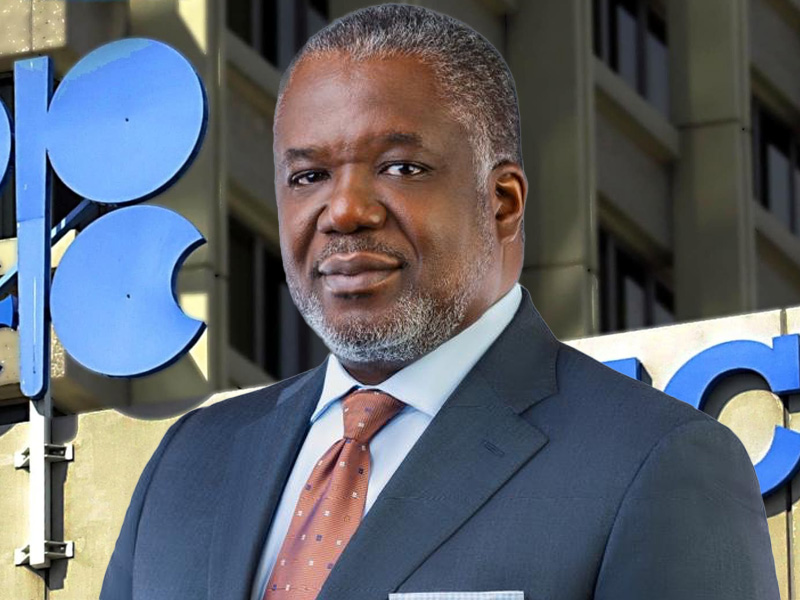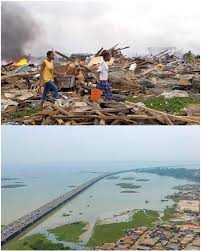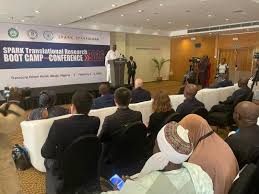
Nigerian Chairman, Board of Governors of the Organisation of Petroleum Exporting Countries (OPEC), Mr. Ademola Adeyemi-Bero, has called for support for the 650,000 barrels per day Dangote Refinery because of the huge positive effect of the facility on the country’s Gross Domestic Product (GDP), foreign exchange savings, and other values to the nation.
But McKinsey & Company warned of the dire consequences of further erosion of investor confidence in the Nigerian oil and gas industry following some controversial proposals in the planned amendment of the Petroleum Industry Act (PIA) and the delayed implementation of some post-PIA regulations.
Adeyemi-Bero, who is also Founder and Managing Director of First Exploration & Petroleum Development Company (FIRST E&P), made the call in Lagos while presenting a keynote paper at the Pre-Conference Workshop of the Nigerian Association of Petroleum Explorationists (NAPE).
He spoke on the theme, “Recent Trends in Divestments and Acquisitions in the Nigerian Oil and Gas Industry: Near and Long-term Implications.”
He said supporting Dangote and other local refineries to add value to Nigeria’s crude oil and gas, instead of exporting to earn foreign exchange, was a sure way to enable the country realise the national aspiration of $1 trillion economy by 2030.
Adeyemi-Bero said for 50 years, Nigeria’s oil and gas production, which was largely in the hands of multinational companies, had been used to facilitate the industrialisation of the Western nations while Nigeria remained underdeveloped.
He faulted those who blamed Shell, ExxonMobil, and others for prioritising export of the volumes to their countries, saying they are businesses looking for feedstock for their industrialisation.
But with the change of dynamics in the Nigerian upstream oil and gas sector, where indigenous companies now control the onshore and shallow assets, Adeyemi-Bero said it was time for the country to reverse the trend of exporting crude oil and gas, and focus on domestic consumption and value addition of the resources.
He specifically advocated declining export of crude oil and gas, and encouraging local refining and processing of the feedstock by supporting Dangote Refinery and other small refineries in the country.
Reflecting on the gains of the subsidy removal policy of President Bola Tinubu, citing its usefulness to Dangote refinery, the OPEC chair stated that the president would have returned fuel subsidies if the refinery were not there to produce fuel locally
Adeyemi-Bero explained, “Just look at the impact the Dangote Refinery has had on foreign exchange and gross domestic product growth. You can imagine if that had happened 50 years ago.
“If the president had said, ‘I’m cancelling subsidies, and I’m not going to allow multiple exchange rates,’ and we didn’t have the option of having petroleum products in this country, I’m sure he would have changed his policies and gone back to subsidies. It’s as simple as that. Let’s not over-aggregate.
“This message is saying, we need to decline exports. If you go to Saudi Arabia today, if you go to the UAE, if you go to Qatar, if you go to Malaysia, if you go to Brazil, they are expanding the value chain and keeping it in their space.
“Now, one man built a refinery; we fought him, we argued with him. But the impact of that Dangote refinery on our GDP and foreign exchange is big.”
He also expressed his support for the naira-for-crude policy of the federal government to help encourage local refining, strengthen the local currency, and stabilise the economy.
Adeyemi-Bero stated, “If we can sell some oil in naira, let’s do it if it works for both parties. The strength of the naira is what it commands in trade. This is why nobody wants the naira outside this space, but the day you can pay for oil in naira because both parties agree, it strengthens the naira.”
He explained, “We need to decline exports. All of us like to sell, but the person that will buy from us will be willing to buy at the right price. ‘I’m investing in dollars, so don’t come and buy in naira. If I invest in dollars, then pay me in dollars.’ But we could make that happen.”
He urged the indigenous players now operating the assets hitherto in the hands of the international oil companies (IOCs) to sit up and use the resources in their hands to enable Nigeria’s industrialisation by delivering more volumes for domestic consumption.
He stated, “The internationals have done their bit. But I do think that God also decided to hand over to Nigerians. ‘They’ve started it; now let me give it to the owners to make it happen.
“The baton has been placed in our hands. We can have oil and gas like the UAE, Saudi Arabia, or Qatar, small nations punching their weight through their resources. We must use ours to step up as a country.”
The OPEC chair also made a case for additional oil production quota for Nigeria, saying the country today has capacity for about 1.8 million barrels per day and pipeline availability has improved to almost above 95 per cent in the last six months.
He said for the first time in years, there are over 60 rigs drilling in the industry, showing a rebound of activities in the sector and a clear indication that achieving the two million to three million barrels per day production target is possible.
Adeyemi-Bero, however, lamented the dearth of big international service company in the industry to enable that production growth target.
He explained that the A-team service companies exited the country over the last 10 years, when the business environment in Nigeria became unattractive and no big projects were on ground to keep them.
He, however, said the trend would be reversed in the coming years, as PIA had provided certainty for investors and some big projects had achieved Final Investment Decisions (FIDs), coupled with recent executive orders introduced by the president.
Meanwhile, discussing some observed potential value-eroding trends around the PIA implementation, McKinsey & Company, an American multinational strategy and management consulting firm, warned of potential further erosion of investor confidence in the oil and gas industry owing to some proposals in the amendment of PIA and the delayed implementation of some post-PIA regulations.
In his presentation, titled, “Leveraging the Petroleum Industry Act as Catalyst for Energy Security and Sustainable Energy Strategy,” Partner at McKinsey & Company, Mr. Oliver Onyekweli, warned that certain challenges could prevent Nigeria from fully realising the benefits of PIA.
Onyekweli listed the challenges as slow implementation of key provisions and regulations from the PIA; instability in regulations; potential value erosion; and regulatory overlap.
He explained that delayed gazetting of regulations and slow release of implementation guidelines contributed to uncertainty.
For instance, he said four PIA regulations had been pending gazetting for 28 months, listing some of them as the Upstream Petroleum Development Contracts Administration, and the Upstream Petroleum Sector Code of Conduct & Compliance Regulations.
According to Onyekweli, certain provisions in the proposed PIA amendments can create additional uncertainty for investors, such as the role of NUPRC as concessionaire and regulator.
He also mentioned levies, fees, charges and others from agencies, which affected stability, citing the Advance Cargo regulations, upstream fees, and rents regulation.
Onyekweli stated, “Certain legislative and regulatory elements could potentially erode benefits from the PIA (e.g. removal of PIA clause allowing PSC contractors claim capital allowances on qualifying capital expenditures, and removal of PIA exemption for hydrocarbon tax deep offshore.
“Some overlap in regulatory authority still potentially exists (e g. NUPRC and NMDPRA on integrated upstream projects) and could remain ambiguous under the law pending a formal amendment/update.”
In his opening remarks, President of NAPE, Mr. Johnbosco Uche, said the pre-conference workshop was a vital part of the association’s annual conference and a platform for industry leaders to deliberate on critical sector issues.
Uche explained that this year’s conference theme, “Revitalising the Nigerian Petroleum Exploration and Production Strategies for Energy Security and Sustainable Development,” reflected the urgency of the times and the need for collective industry action.
He said the country must work to increase production to meet its national target while ensuring long-term sustainability.
Uche stated, “In the near term, we need to increase production. The country is pushing to hit the three million barrels per day target. We have to push it to that three million target. But most importantly, sustaining that production is also key.”
The NAPE president underscored the role of explorers in achieving that objective, adding that maintaining technical excellence is vital for the industry’s survival.
Peter Uzoho



